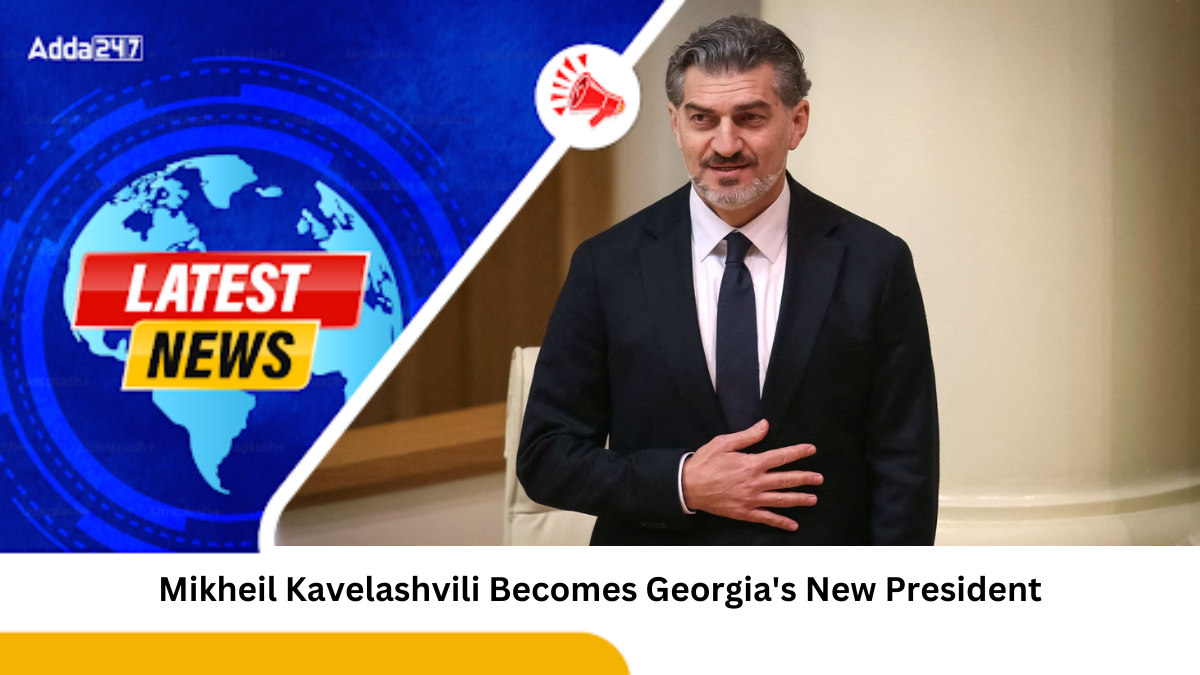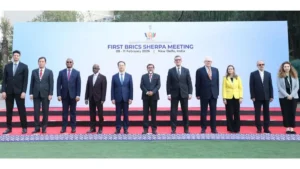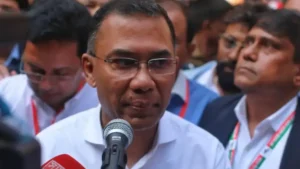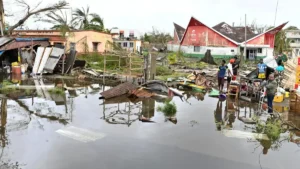Mikheil Kavelashvili, the 53-year-old former footballer, was elected president of Georgia on December 16, 2024, marking a significant shift in the nation’s political landscape. His victory comes amid growing concerns over Georgia’s alignment with Russia, following constitutional changes that replaced direct presidential elections with a 300-seat electoral college. Kavelashvili’s candidacy, strongly backed by the Georgian Dream party, reflects the ruling party’s increasing authoritarian tendencies, as critics warn that this election may undermine Georgia’s European Union aspirations.
Football Career to Politics: Kavelashvili’s Journey
Kavelashvili’s journey from football to politics is remarkable. Starting his career at Dinamo Tbilisi, he won multiple Georgian Premier League titles and later moved to international clubs, including Manchester City. His football achievements included 46 appearances for the Georgian national team, scoring nine goals. After retiring from football, Kavelashvili transitioned to politics, being elected to Georgia’s parliament in 2016 on the Georgian Dream ticket. In 2022, he co-founded the People’s Power movement, a group aligned with Georgian Dream known for its anti-Western rhetoric.
A Controversial Path to the Presidency
Kavelashvili’s election as president, while largely ceremonial due to Georgia’s 2017 constitutional reforms, signifies the tightening grip of the Georgian Dream party. The opposition views this as a significant blow to Georgia’s pro-Western aspirations, accusing Georgian Dream of leaning increasingly towards Russia, particularly after Russia’s 2008 invasion of Georgia. Critics highlight the party’s controversial laws, including the “foreign influence” law, which mirrors Russian laws that target organizations critical of the government. The EU has expressed concerns, temporarily halting Georgia’s EU accession talks after the law’s approval in 2023.
Political Polarization and Public Backlash
Kavelashvili’s rise has sparked public protests, with demonstrators criticizing the electoral process and his lack of higher education. The Georgian opposition claims that his leadership will further diminish Georgia’s chances of joining the EU, emphasizing the growing divide between pro-Western and pro-Russian factions. The government’s crackdown on dissent, including the use of water cannons and tear gas against protesters, has drawn international condemnation from the EU and the United States. Despite the protests, Kavelashvili remains resolute in his vision, calling for a “restoration” of the presidency’s constitutional role, which he claims was undermined by outgoing President Zourabichvili.
Summary of the news
| Category | Key Points |
|---|---|
| Why in News | Mikheil Kavelashvili, a former footballer, was elected President of Georgia by a 300-seat electoral college. His victory reflects the increasing control of the Georgian Dream party, which has been accused of leaning towards Russia. |
| President of Georgia | Mikheil Kavelashvili, 53, former Manchester City player, elected president of Georgia. |
| Election Process | Kavelashvili was elected by a 300-seat electoral college, replacing direct presidential elections (since 2017). |
| Political Party | Georgian Dream party, which has been criticized for its pro-Russian stance and authoritarian leanings. |
| Political Movement | Co-founder of the People’s Power movement, aligned with Georgian Dream, known for anti-Western rhetoric. |
| Controversial Laws | Kavelashvili co-authored a law requiring organizations receiving over 20% foreign funding to register as “pursuing the interest of a foreign power”. |
| International Impact | EU put Georgia’s EU accession on hold after controversial law approval in 2023, leading to protests and backlash. |
| Georgia’s Capital | Tbilisi, the capital city of Georgia. |
| Georgian National Team | Kavelashvili made 46 appearances for the Georgian national football team, scoring 9 goals. |
| Football Career | Played for Dinamo Tbilisi, Manchester City, Spartak Vladikavkaz, and Grasshoppers Club Zurich. |
| Controversies | Protests over Kavelashvili’s lack of higher education and the Georgian Dream’s increasing control over the political system. |
| EU Relations | Opposition claims Kavelashvili’s election is a blow to Georgia’s EU aspirations due to pro-Russian policies. |



 India Hosts First BRICS Sherpas Meeting ...
India Hosts First BRICS Sherpas Meeting ...
 Tarique Rahman Set to Lead Bangladesh? B...
Tarique Rahman Set to Lead Bangladesh? B...
 Cyclone Gezani Hits Madagascar: 20 Dead,...
Cyclone Gezani Hits Madagascar: 20 Dead,...








